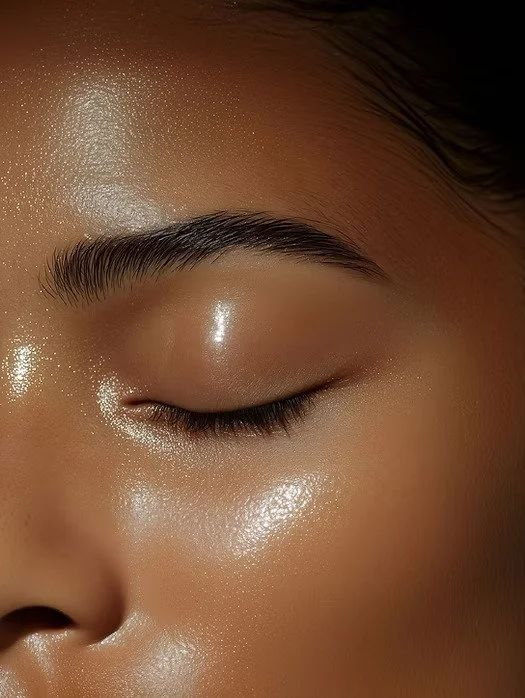Polynucleotides — The Next Generation Skin Booster Everyone’s Talking About
There’s a new buzzword in advanced aesthetics: Polynucleotides. Touted as the next generation of skin boosters, they’re quickly becoming a clinic favourite — and for good reason. Designed to work with your body’s natural regeneration processes, polynucleotides go deeper than hydration alone. They help improve skin quality from the inside out.
But what are polynucleotides exactly? How do they differ from traditional treatments like Profhilo or dermal fillers? And are they really worth it?
Let’s break it all down.
⸻
What Are Polynucleotides?
Polynucleotides are chains of natural DNA fragments that act as biostimulators — encouraging your body’s own cells to regenerate, repair, and restore healthier skin. Originally used in regenerative medicine, they’ve now found a powerful place in aesthetics.
Rather than simply filling or hydrating the skin, polynucleotides help stimulate fibroblasts, boost collagen and elastin production, and support tissue repair — leading to smoother, more radiant skin over time.
⸻
What Skin Concerns Do Polynucleotides Help With?
Polynucleotides are ideal for clients who want subtle, natural improvement without adding volume or making drastic changes. They’re especially effective for:
Dull or tired-looking skin
Fine lines and early signs of ageing
Acne scarring or uneven texture
Dehydrated, stressed, or sun-damaged skin
Under-eye hollowness or crepey texture
Skin that’s lost elasticity or firmness
They’re also used to improve wound healing, making them great post-procedure or for clients with sensitive, reactive skin.
⸻
Popular Treatment Areas:
Under-eyes
Full face
Neck
Décolletage
Hands
Scars or stretch marks
⸻
Polynucleotides vs. Profhilo — What’s the Difference?
While Profhilo is a skin booster made from pure hyaluronic acid to deeply hydrate and improve skin elasticity, polynucleotides go a step further by stimulating cellular regeneration.
In simple terms:
Profhilo = hydration & firmness
Polynucleotides = healing, regeneration & long-term skin quality improvement
Many clients benefit from using both — alternating or combining treatments for enhanced results.
⸻
What to Expect During Treatment
Polynucleotide injections are placed into the superficial dermis using a small needle or cannula. The procedure is quick and relatively comfortable, with only mild redness or swelling immediately after.
Treatment time: 30–45 minutes
Downtime: Minimal
Number of sessions: Usually a course of 2–3 spaced 2–4 weeks apart
Results: Gradually build over 3–6 weeks, with ongoing improvement
⸻
Are Polynucleotides Safe?
Yes. Polynucleotides are made from highly purified DNA fragments, most often derived from salmon or trout (a source chosen for its high biocompatibility). The risk of adverse reaction is very low, and they’re suitable for most skin types, including sensitive or acne-prone skin.
Of course, a full consultation is carried out before any treatment to assess suitability and expectations.
⸻
Who Is a Good Candidate for Polynucleotides?
Polynucleotides are perfect if you:
Want visible skin improvement but not dermal filler
Are looking for regenerative, long-term results
Have concerns around crepey, fragile, or textured skin
Prefer treatments that work with your body, not just mask imperfections
Want subtle, healthy-looking skin without volume or drastic changes
They’re also ideal as a preventative treatment in your late 20s or 30s — or as part of a long-term skin rejuvenation plan in your 40s, 50s and beyond.
⸻
When Will I See Results?
Results start to show within 2–3 weeks, with optimal outcomes seen after the second or third session. Improvements include:
Softer texture
Better elasticity
Healthier tone
Brighter, more rested appearance (especially under the eyes)
These are not “instant” fillers — they’re slow and steady skin changers, with results that look natural and healthy, not artificial.
⸻
Polynucleotide Pricing
Prices for polynucleotide treatments at our clinic start from £280 per session. Packages are available and recommended for best results. Your personalised treatment plan and quote will be discussed during consultation.
⸻
Final Thoughts
Polynucleotides are part of a new era in aesthetic medicine — one that focuses on regeneration over transformation. Whether you’re looking to brighten under-eyes, improve skin texture, or start a long-term rejuvenation plan, this treatment offers real, visible improvements with minimal downtime.
If you’re curious to find out whether polynucleotides are right for you, we’d love to welcome you for a one-to-one consultation.
⸻
Book your consultation today and take the first step towards naturally radiant, regenerated skin.
